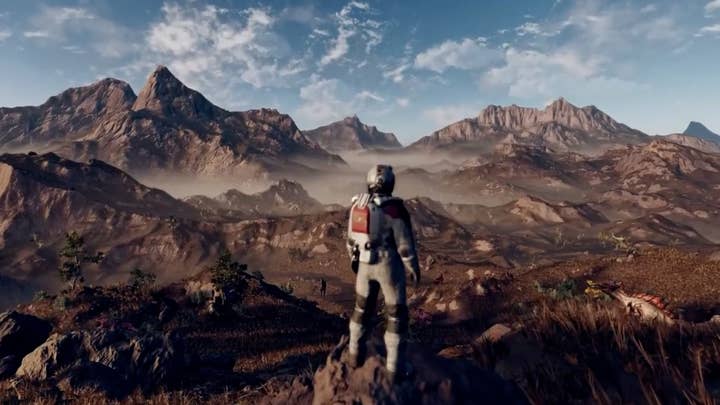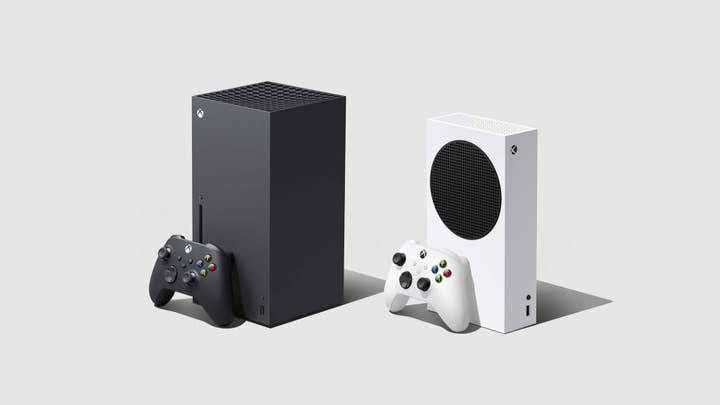How long can Microsoft float on goodwill? | Opinion
As a pandemic-distorted market starts to return to normality, the need for Xbox to impress with game exclusives has become urgent
Sign up for the GI Daily here to get the biggest news straight to your inbox
It's important to have realistic expectations about how financial reports from games industry companies are going to look in the coming year. We're already well into the realm of tough comparisons; the back half of 2022 saw the first reports coming out which really reflected the end of the pandemic period, and the accompanying drops in revenue that are the hangover to the massive boost video games saw during 2020 and 2021.
Consequently, we should all be wary of reading too much into relatively minor declines. It's actually going to be more informative to compare numbers to the 2019 baseline than to the intervening years, and we're all just going to have to get used to seeing the pandemic as a weird spike on a lot of graphs in the coming decade.
This is a logic that applies pretty broadly across the industry, and it's worth bearing in mind especially when you look at the platform holders – whose pandemic era performance was rendered even more unusual by the accompanying supply chain issues. For the past few years, all of the platform holders have struggled to match skyrocketing demand to severely pressured supply. That has done some odd things to the market.
This all results in a highly distorted competitive landscape – and in many regards, the primary beneficiary of that distortion has been Microsoft
Empty store shelves have left consumers with the perception that high-end consoles like PS5 and Xbox Series X are all but non-existent, despite actually building installed bases at a breakneck pace, while Nintendo has seemingly opted to hold back on a hardware refresh entirely.
Consequently, the easy availability of more mature hardware means that the previous generation's PS4 and generation-spanning devices like Switch and Xbox Series S have remained dominant forces, effectively extending out the transition period for several years.
This all results in a highly distorted competitive landscape – and in many regards, the primary beneficiary of that distortion has been Microsoft. The company entered this generation with a powerful amount of goodwill behind its offering.
The Xbox Series X hardware was hugely impressive, the Series S made waves with a highly competitive price-point for a device which still had many of the key features of the new generation (although its less powerful specs might be setting up developer headaches down the line), and an acquisition spree that saw the company buying up a number of well-respected developers, topped off with picking up Zenimax/Bethesda in a multi-billion dollar deal, paved the way for the firm to become competitive with Sony on the software front.
While the pandemic was an odd time for everyone, in some regards it was a gift to Microsoft, whose Series S console filled in nicely as supply chain issues hobbled the PS5, and whose Game Pass offering looked immensely attractive during the months of lockdown and other restrictions that many consumers experienced.
Yet as the pandemic has lifted, the extent to which Microsoft is still being kept afloat by that goodwill is getting harder and harder to ignore. The company's financial results this week showed pretty much what you'd expect, with the figures for Xbox being solid even if the comparisons with the pandemic years are a bit tough.
The problems lie in the software pipeline – which is where the consumer goodwill is going to start to wear thin eventually
There's no real grounds to criticise the platform's performance there – and the Xbox hardware itself has also held up very well (notably, the Xbox controllers don't seem to suffer from the absolutely abysmal build quality and reliability problems that have plagued Nintendo and Sony in this generation). The Game Pass offering, too, continues to be very impressive and great value for money. The problems, however, lie in the software pipeline – which is where the consumer goodwill is going to start to wear thin eventually.
After the huge spending spree Microsoft undertook in an attempt to build a software pipeline to rival the PlayStation studio system, the single biggest announcement on that front has been… another acquisition. Namely the planned purchase of Activision Blizzard, which will be the biggest deal in the industry's history if regulators allow it to happen.
Beyond that, Bethesda's Starfield is pretty much the only really huge new game in the pipeline that Microsoft has to show for the billions it has spent. An event earlier this week was meant to be a showcase of upcoming games for the year, but ended up showing off relatively little software. There's no doubting the talent Microsoft has amassed by opening its warchest and buying up studios and publishers, but the actual results of this strategy are yet to materialise.
In that context, it's not unreasonable to wonder just how far goodwill can carry Xbox in the absence of concrete information about system-selling exclusives, let alone the actual appearance of those exclusives themselves.

The one area of genuine concern in the latest financial results is the suggestion that Game Pass has hit a speed bump on consoles, with subscriber growth slowing significantly (though it remains solid on PC). This is certainly related to saturation of some segments of that market (you can't sell Game Pass to console owners who haven't been able to buy a console yet), but it's also partially down to the value proposition being a tougher sell when there aren't major first-party games on the service.
At the end of 2021, Game Pass got the latest Halo game as a day one release. The end of 2022 saw nothing comparable, and there's arguably nothing comparable on the release pipeline until Starfield, and nothing we know about on the far side of Starfield.
Of course, in an ideal world, games shouldn't be rushed; they should be given exactly as much time in development as they need to be high quality when they are released. The charitable interpretation of what's happening with Microsoft is precisely this – that the company has a ton of games in the pipeline but it's holding back on even talking about them, let alone releasing them, until such time as they're really ready for prime time. That's giving Xbox a rough time right now, but it'll be able to come out swinging in the back half of the generation as all of those development processes come to fruition.
There's arguably nothing comparable [to Halo] on the release pipeline until Starfield, and nothing we know about on the far side of Starfield
Is that really what's happening, though? It's not that Xbox doesn't have any games at all – this week's showcase included a new game from Tango Gameworks, Hi-Fi Rush, as well as updates about Forza, Minecraft, and Arkane Austin's Redfall, which looks interesting even if I'm still not entirely sure what it is. None of these are really system selling exclusives, though, and the need to pad out the showcase with an expansion pack for Elder Scrolls Online didn't really look great – ESO is fine and all, it's just that a relatively long-in-the-tooth MMORPG doesn't seem like the kind of next-gen Xbox experience that the company would like to be touting to people right now.
Still, there are clearly studios at work and products being turned out. Game Pass, too, isn't sitting still and will have a pretty strong opening few months of 2023 – but on both sides of this, we're still lacking the software that you can point to and say "here, this is why you should buy an Xbox."
The window for that software to make its appearance and make a genuine competitive impact on the generation is slowly but inexorably closing. As supply chain issues are resolved and mid-generation hardware refreshes start to roll out (expect Sony's first update, albeit relatively minor, towards the end of this year, with Nintendo also likely to finally launch its delayed update to the Switch this year), availability will stop being a key metric for success.
Support for the previous generation will start to tail off, and that Sony studio system will have "true" PS5 exclusives to show the world in relatively short order. Microsoft needs a counter-argument, and "Starfield will launch sometime!" will not suffice – and will suffice even less if Starfield actually does launch, and there's nothing major to be seen in the pipeline behind it.
We're still lacking the software that you can point to and say "here, this is why you should buy an Xbox"
This need is made all the more urgent by the company's large round of layoffs this month, which we know impacted the gaming division too – including a reported cut of a quarter of the headcount at 343 Industries, which has to raise questions about the future direction of Halo, the Xbox's most iconic franchise.
Many of us had hoped that 2023 would be the year in which Microsoft's software drought ended and the fruits of its acquisition spree fully ripened; it now seems pretty clear that this will not be the case, and Xbox will continue to be in a weird half-light of goodwill and expectation for the coming months. This must, however, be the year when the pipeline comes into focus.
If we leave 2023 with the same lack of clarity on what's on the Xbox software roadmap as we have right now, it's hard to imagine a situation where Sony doesn't straight-up eat Microsoft's lunch again, and no amount of goodwill for the Game Pass offering will offset the decades-old logic that exclusive software sells consoles in the long term.
The question of whether Microsoft is going to be able to buy Activision at all will loom large this year, but there's actually an even bigger question underlying that: if Microsoft can't demonstrate the ability to effectively utilise its existing acquisitions of studios and publishers to create a competitive, compelling game software pipeline for Xbox, isn't buying a bigger publisher just a case of throwing $70 billion of good money after bad?
Sign up for the GI Daily here to get the biggest news straight to your inbox

